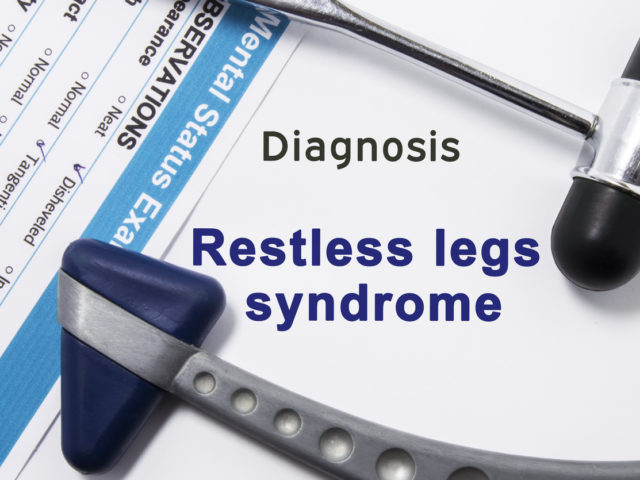Lack of a good night’s rest can really take a toll on quality of life. According to the National Sleep Foundation, one in ten American adults suffers from Willis-Ekbom Disease (WED) – more commonly known as Restless Legs Syndrome (RLS). This neurologic sensorimotor disorder creates the sensation or urge of having to constantly move one’s legs, and is marked by crawling, throbbing, itching, or aching sensations in these limbs.
RLS usually occurs in the evening hours. The sensations are worse at night, when lying down, or after long periods of sitting. Relief can be temporarily achieved by simply moving around, walking, or stretching.
Many physicians believe that there are also environmental factors – things we eat, drink, and do in everyday life – that can trigger or exacerbate the symptoms of RLS. By examining our actions, we can work toward reducing the occurrence of this bothersome malady.
Medicine and Restless Legs Syndrome
It may be a hard pill to swallow, but your medications could be causing your body’s restlessness. Certain antihistamines (such as Benadryl) block the brain’s dopamine receptors, which play a vital role in controlling movements. Antidepressants are also being examined as a possible culprit. They signal the release of serotonin, which can intensify that perpetual sense of “twitching.”
It’s all about finding the right balance with your medications; if you sense that your dosage is exacerbating your RLS, speak to your physician about an adjustment. A sleep medicine doctor may prescribe something called a dopamine agonist, which activates the receptors in the brain that regulate movement.
Iron Deficiency and RLS
Are you pumping iron? Ferritin, that is? Ask your physician about testing your serum ferritin levels for abnormalities. Unlike a regular iron measurement, this test records the proteins that store iron – in other words, the body’s reserves. If this reading is low, you are considered deficient.
Whether your iron shortage is related to anemia, or pregnancy (which causes a decrease in hemoglobin levels), a dearth of this vital nutrient can be problematic. In many cases, iron supplementation is an easy solution to this. If you’re looking to increase your iron intake naturally, incorporating dark leafy greens and red meat are a great place to start.
RLS and Everyday Habits
Hazelnut, vanilla, or regular black – no matter what your preference is when it comes to your cup of joe, the hefty serving of caffeine could be one cause of RLS you hadn’t considered. Coffee, tea, soda, and chocolate can all be problematic for those who suffer from this syndrome (especially when they’re consumed too close to bedtime).
About 30-60 minutes of exercise a day can help you stretch, burn calories, and get those endorphins pumping. Cycling, yoga, and pilates are especially beneficial for quelling RLS symptoms. However, doing any strenuous activity right before turning in for the night is a recipe for restlessness. For this reason, exercise should be avoided in the hours before going to bed.
Sleep Medicine Specialist in Charlotte
If RLS is keeping you from getting much-needed sleep, pay a visit to a sleep medicine specialist. A diplomate of the American Board of Sleep Medicine and the American Board of Medical Specialties in sleep medicine, Dr. Jeannine Gingras has made helping her patients get better rest the primary focus of her career.
Founder and Medical Director at Gingras Sleep Medicine, and an internationally renowned expert on RLS, she lends a personalized approach to medical care – and she will work with you to discover a solution. Call our office today at (704) 944-0562 or fill out our appointment request form online, and start getting a good night’s sleep – every night.

